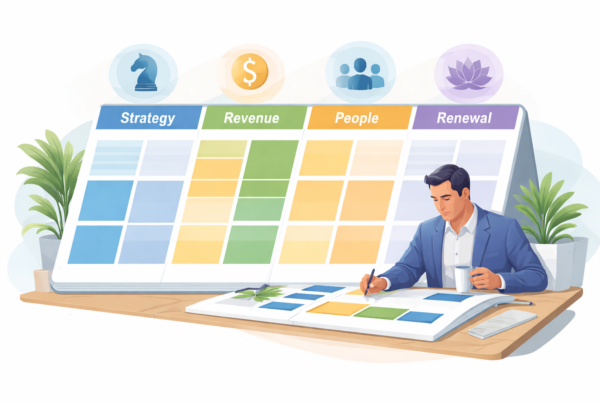Time Management

What is Time Management?
The Cambridge Dictionary defines time management as “the ability to use one’s time effectively or efficiently, especially at work.” Yet can you manage time?
Time Management is often perceived as the one skill that, when you master, you will become more efficient and effective and realize your full potential.
Time Management is really about managing yourself. If you can’t control yourself, you can’t manage your time. And if you can’t manage time, everything else becomes more difficult.
However, successful time management is about deciding your priorities, identifying essential tasks, and budgeting time accordingly.
Most people find they spend time on other people’s priorities, fighting fires – those urgent ‘recurring emergencies.’ Their to-do lists become loaded with specific tasks that need to be checked off within time constraints that, for the most part, are invalid.
The reality is that every hour is still only 60 minutes long. It doesn’t matter how rich or bright you are; you get the same 60 minutes to use on the important tasks.
What you do with that time depends on the skills developed by self-analysis, planning, assessment, and control. Just like money, the value of your time is limited.
What are the best ways to manage time?
Know how you spend your time.

You must first know where your time goes by conducting a time audit to manage your time. This requires regular introspection and analysis.
Start by estimating how you spend your time daily in 15-minute increments. Then, keep a log for 3-5 days to get an accurate picture of where your time is going.
Once you have this information, you can determine where your time goes. Is it on:
- Focussed work
- Multitasking
- Meetings
- Personal phone calls
- Social media
- Text messages
- Recurring tasks
- Waiting for others
- And other bad habits
This simple act of noticing where your time goes often increases productivity.
However, most people realize they are focused on the routine without clarity of purpose. In other words, they are completing their to-do list but failing to move the needle and achieve their goals.
This is where effective time management comes in.
Good time management strategies

Now you know where your time goes; you now have to decide where to place your focus. This is about having clear objectives, focusing on outcomes and not tasks.
To do this, you must first identify these and become your priorities. Take a step back and look at the bigger picture.
Are these priorities aligned with your goals? What needs to be done to achieve those goals? What has to be done to move in the direction of achieving these?
When you are clear on your priorities, you can begin scheduling these. A tip I give my clients is that they don’t plan tasks but instead schedule the time to achieve a particular outcome or goal.
Use a good calendar; this is a fundamental tool at the heart of your time management system. It doesn’t matter if you use a paper or a digital system. That said, digital systems have huge advantages. They can be accessed remotely, easily shared, and often synced across multiple devices, including your smartphone. You don’t need anything fancy; an online calendar from Microsoft, Apple, or Google is more than sufficient.
TIP: Don’t allow others to schedule activities in your calendar unless they respect your priorities
When you plan and ensure your calendar is now aligned with your priorities and most important tasks and objectives, you will find that there will be less time for distractions and wasted time.
Time management tips
Get organized
The first step to good time management is being organized. This includes having a place for everything and keeping everything in its place.
TIP: When you’re organized, you know where things are and don’t waste time looking for them. This also includes having a system for everything.
Create a daily schedule and stick to it
Once you know what your priorities are, it’s time to create a daily schedule. This will help you focus on the most important tasks.
TIP: Be realistic when creating your schedule. If you try to pack too much into one day, you will only feel overwhelmed.
Create Time Blocks
Time Blocks are a great way to stay on track and focused. They are blocks of time that you schedule for specific tasks.
TIP: Use Time Blocks for tasks that require uninterrupted focus.
Give tasks time limits.
One of the best ways to stay on track is to give yourself time limits for each task. This will help you focus and prevent you from getting sidetracked.
TIP: Use a timer to stay on track.
Leave a buffer time between tasks and meetings.
When creating your schedule, make sure to leave some buffer time between tasks and meetings. This will give you time to transition and prepare for the next thing on your list.
TIP: Use a calendar reminder to track when you need to start preparing for the next task or meeting.
Learn to say no
One of the hardest things to do is to say no, but learning how to do this is important. Otherwise, you will take on more than you can handle, and your time will be stretched too thin.
TIP: Be polite but firm when saying no.
Avoid multitasking
Multitasking is one of the biggest time wasters. When trying to do two things at once, you do both tasks poorly.
TIP: Focus on one thing at a time and give it your full attention.
Set deadlines for yourself
One of the best ways to stay on track is to set deadlines for yourself. This will help you focus and ensure you’re completing things on time.
TIP: Use a calendar or to-do list to keep track of your deadlines.
Schedule breaks
It’s essential to take breaks throughout the day. This will help you refresh and recharge to continue working at your best.
TIP: Set a timer to remind yourself when to take a break.
Use the Pareto Principle or 80-20 rule.
Work on the 20% of your tasks that will produce 80% of your results or progress to achieving your goals.
TIP: Stay Focused on those tasks that bring the greatest return. Delegate or assign those that distract you from these 20% activities.
Delegate: Get help from others
To be successful, you need to learn how to delegate. This means getting help from others when it’s needed.
TIP: Delegate outcomes – make the result the responsibility of whoever you have assigned a task to.
Stop Procrastinating
Procrastination is one of the biggest time wasters. Learning how to overcome this is essential so you can focus on what’s important.
TIP: Break down big tasks into smaller ones so they seem less daunting. Then, take it one step at a time.
Spot the Time Thieves

One of the most challenging tasks when applying your new time management skills is to spot and avoid ‘time thieves.’ These can come in many forms, including:
- Recurring events that you feel obligated to attend.
- Failure to manage and grow your colleagues, team, and directs.
- The urge to do something now because “it will only take a minute.”
- Failing to plan appropriately.
- Ignoring your own commitments within your calendar.
- Avoiding tough tasks.
- Underestimating how much time to complete the task at hand.
- Phone calls
- Open door policy being abused – Can I ask you a question?
- Email, not just SPAM.
What about you?

This article has focused on good time management skills in the workplace. However, the saying goes, “Work to live, not live to work.”
You must apply good time management techniques to your personal life too.
- Know what is essential for you, your partner, and your family, and ensure that you set aside time and energy to make these happen.
- Make sure you get enough sleep.
- Take time to look after yourself physically, mentally, and emotionally. The human brain is the most powerful resource, so ensure it is on your list of priorities.
- Have fun along the way – being effective as a human being has an entirely different meaning.



